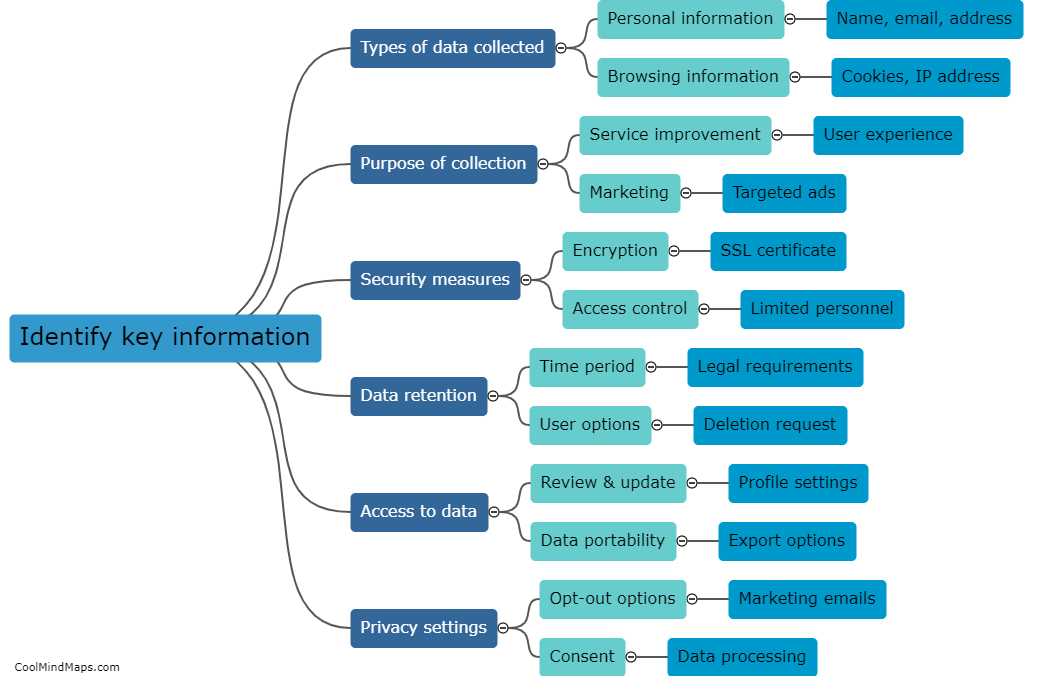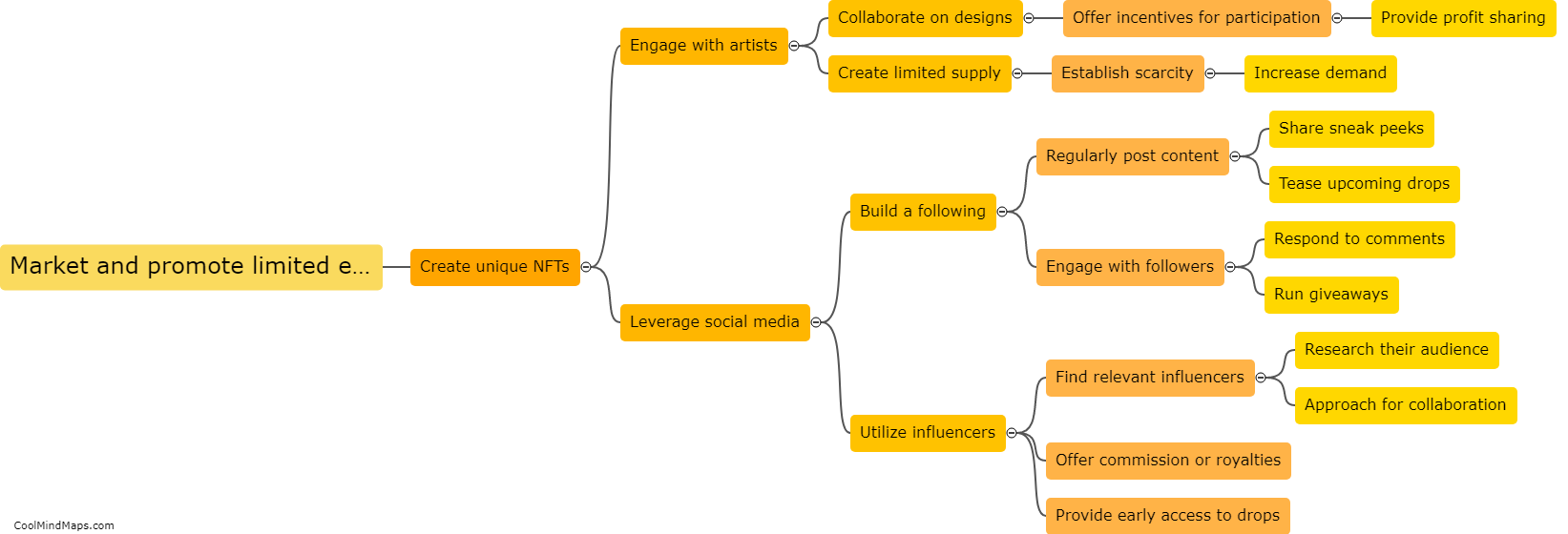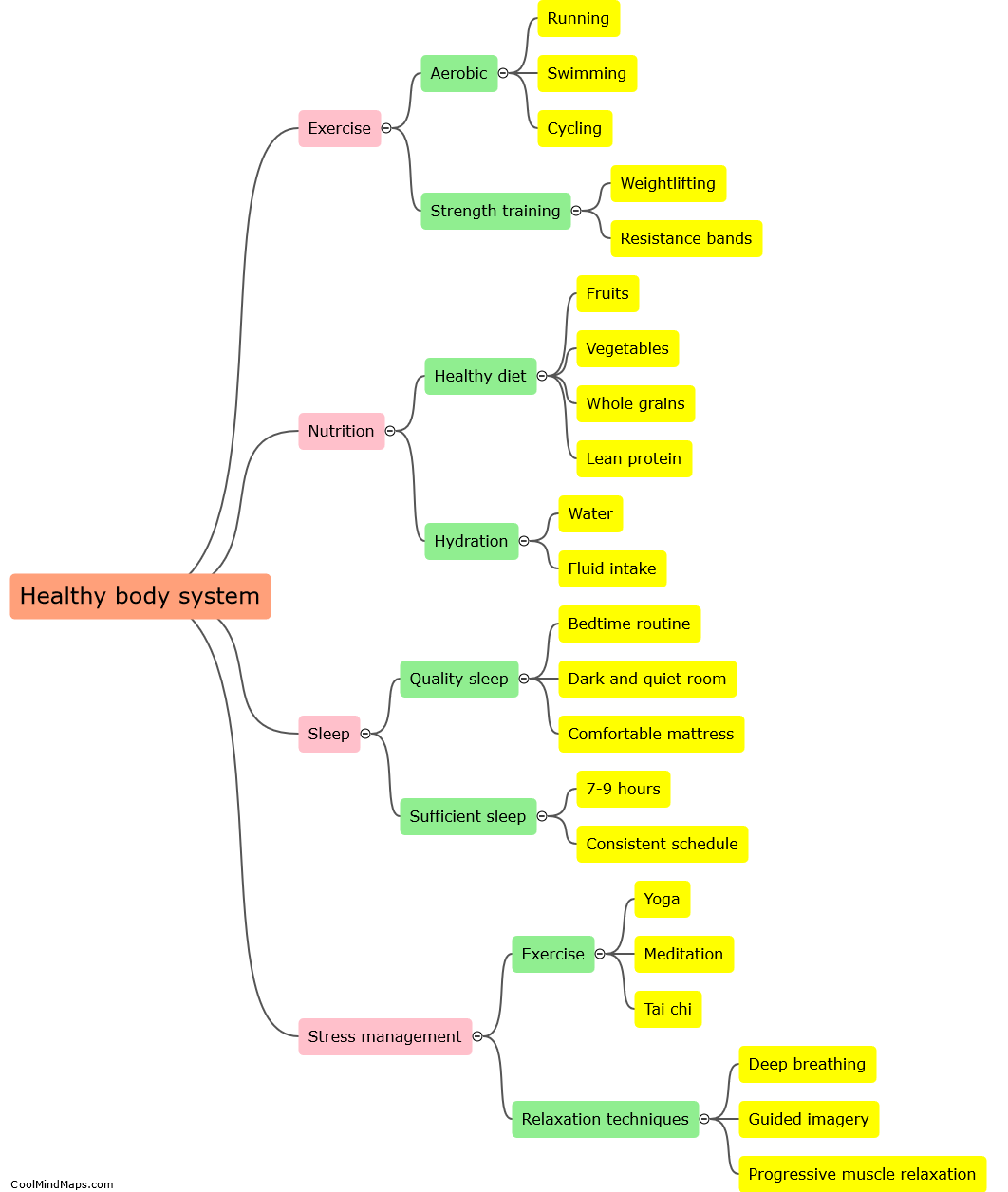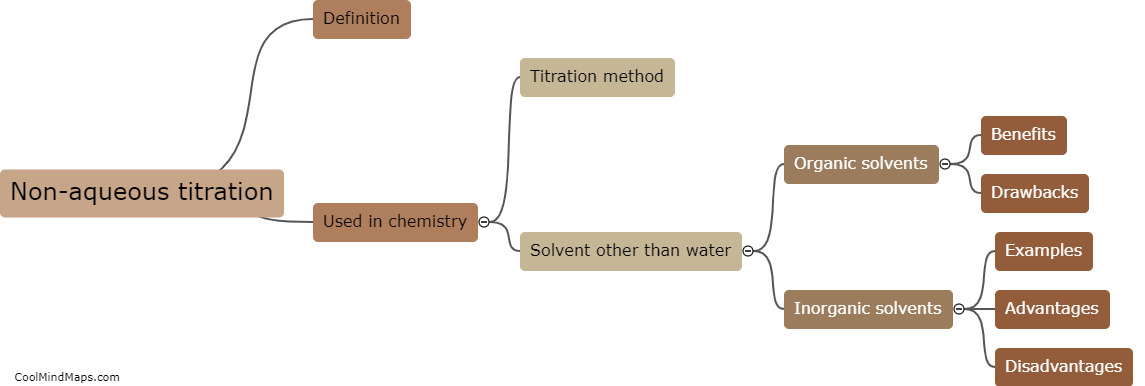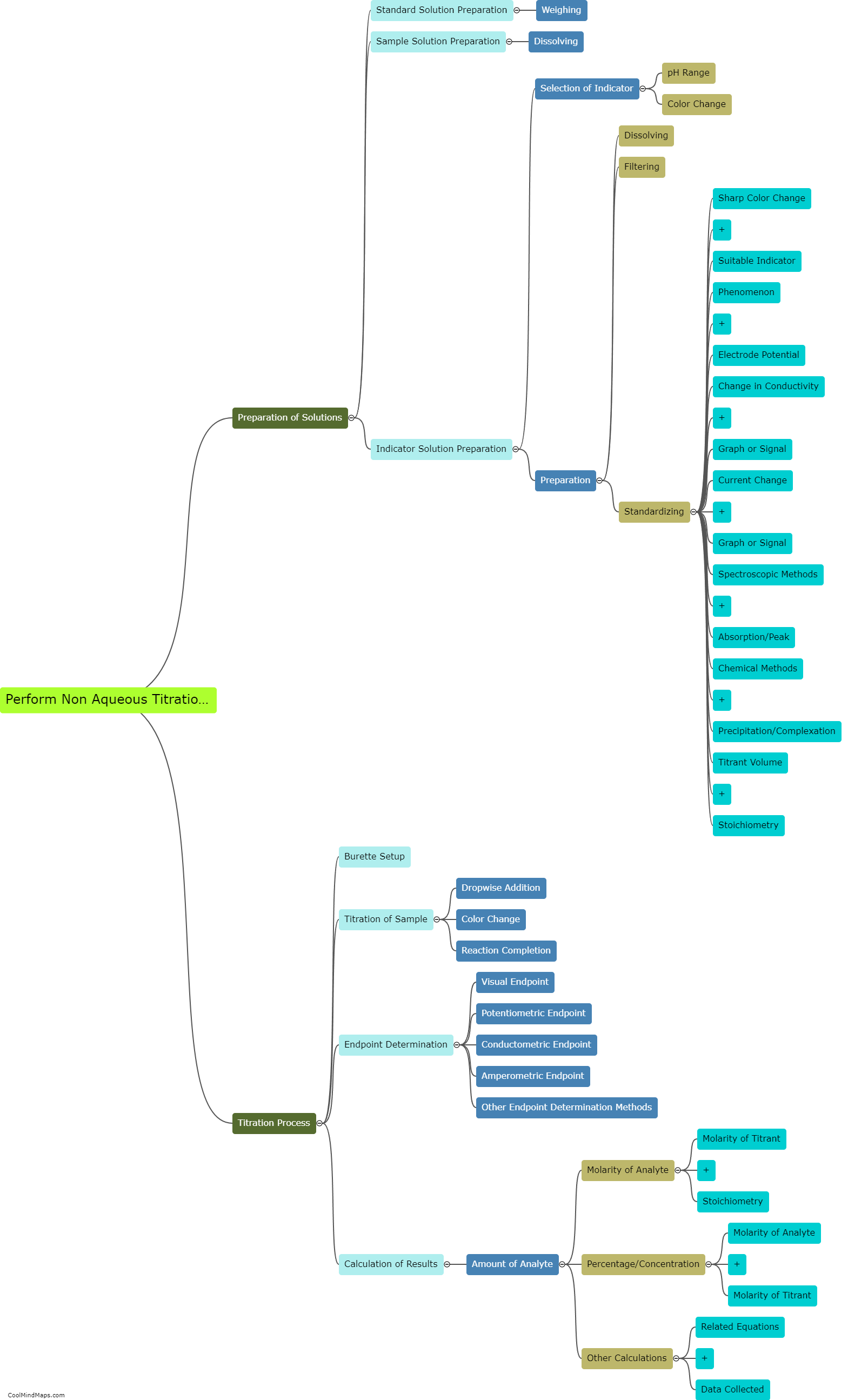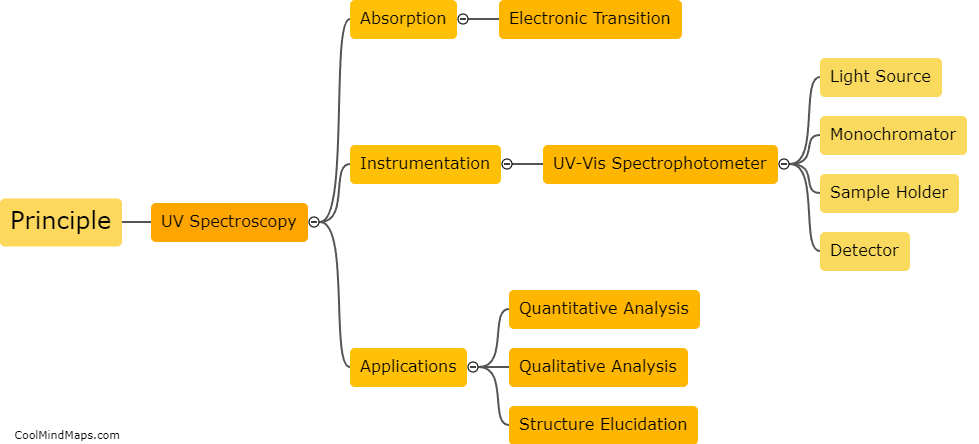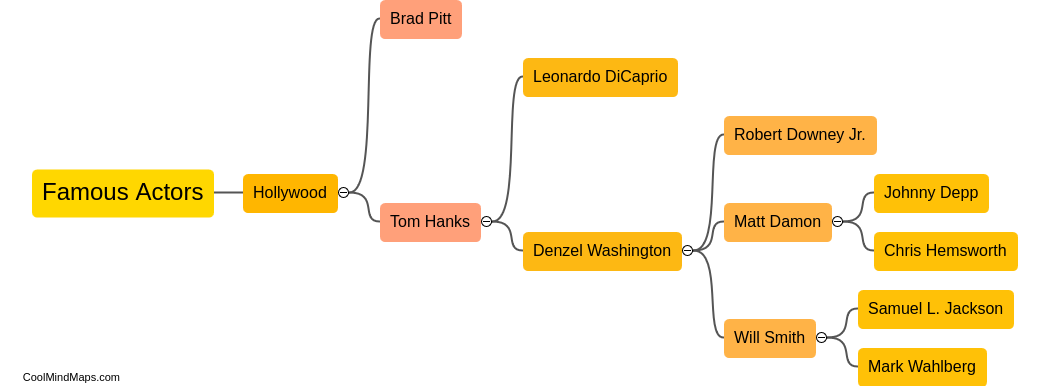What is UV spectroscopy?
UV spectroscopy, also known as ultraviolet-visible spectroscopy, is a technique used to study the interaction of ultraviolet (UV) and visible light with matter. It involves the absorption or scattering of light by molecules in the UV and visible regions of the electromagnetic spectrum. UV spectroscopy is utilized in various fields such as chemistry, physics, biology, and environmental science to analyze the electronic transitions of molecules and determine their structure, concentration, and purity. By measuring the absorption of light at specific wavelengths, valuable information about the chemical composition, bonding, and electronic properties of a substance can be obtained. UV spectroscopy has proven to be a valuable tool for qualitative and quantitative analysis, making it an essential technique for scientific research and various industries.

This mind map was published on 28 September 2023 and has been viewed 117 times.
